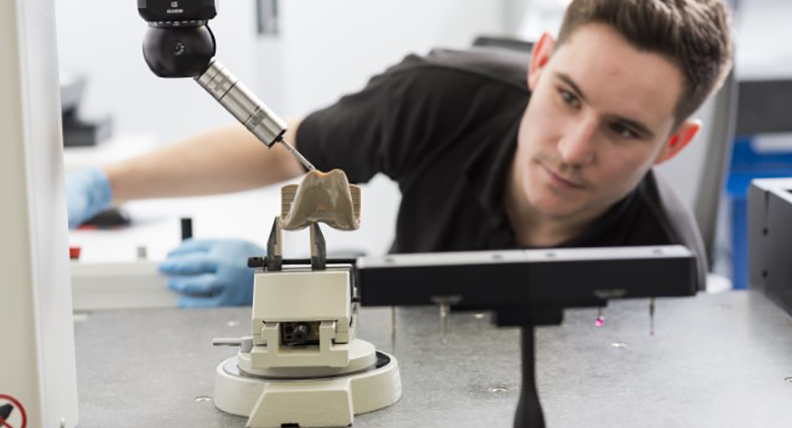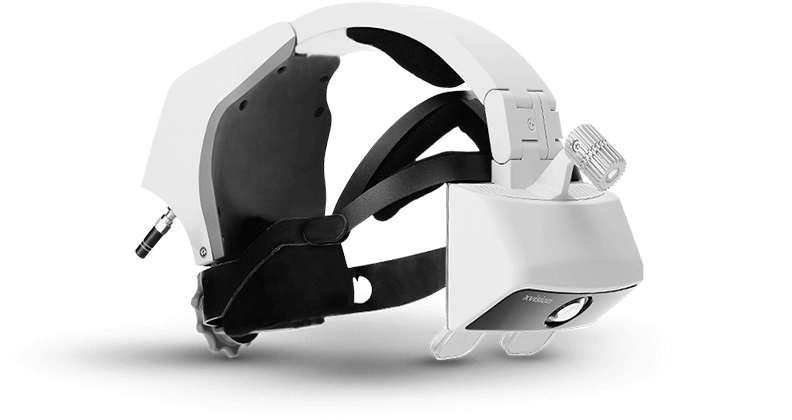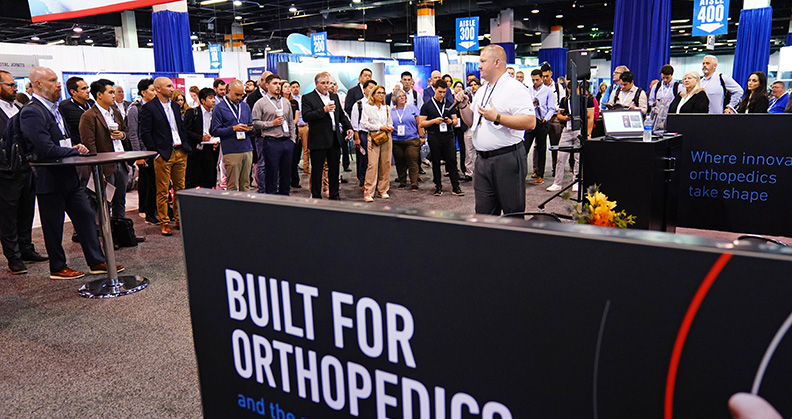
Maxx Orthopedics and Invibio Biomaterial Solutions initiated a premarket global feasibility study of a new, all-polymer PEEK-OPTIMA™ femoral knee component for total knee replacement.
Combined with the Freedom® high-flex all-polyethylene tibial component, the femoral knee provides a modern, metal-free alternative to the standard knee. The femoral component has the potential to correct component-to-bone material mismatch for the preservation of femoral bone density, while avoiding patient complaints of metal sensitivity and achieving increased post-operative patient outcomes.
PEEK-OPTIMA polymers offer performance characteristics such as modulus and flexural strength close to that of cortical bone, contributing to bone density preservation, and radiolucent material properties that allow artifact-free imaging during and after implantation. The polymer has proven biocompatibility and biomechanical benefits in implantable spine, trauma and other devices that provide safety, longevity and reassurance to patients and surgeons.
The PEEK-OPTIMA femoral component is based on Maxx Orthopedics’ Freedom Total Knee high-flexion, bone-conserving design.
The study will be carried out across multiple international sites, with a total of 68 subjects receiving the femoral knee component. The recruitment period is estimated at 12 months with an anticipated duration until last patient, last visit of 24 months thereafter, for a total of 36 months, said Corey Perine, COO of Maxx Orthopedics. The company will evaluate patient outcomes at intervening time intervals through 24 months post-op.
The primary endpoint for the study will be the difference between the Knee Society Score at intervening post-op time intervals through 24 months compared to pre-treatment. Additionally, extensive radiographic and MRI analysis will be conducted to monitor the device in situ.
When asked about the benefits of a polymer knee, Perine noted the properties of the polymer.
“In addition to the immediate benefits of less weight and the elimination of any metal ion release or metal sensitivity reactions, because PEEK-OPTIMA polymers are radiolucent, we may have better visibility of early aseptic loosening and mal-alignment in the operated joint,” he said. “Furthermore, the mechanical properties of PEEK-OPTIMA polymers are closer to cortical bone than traditional metals, and some of our preclinical research suggests that may minimize stress shielding and bone resorption. Once we establish product safety, we intend to study the product further to establish these benefits concretely.”
The global study is the next step in what has been a more than seven-year relationship between Maxx Orthopedics and Invibio.
When asked why Maxx Orthopedics has chosen to focus on materials, Perine said, “Consistent with our company mission, PEEK-OPTIMA polymer has the potential to improve patient satisfaction and quality of life, without increasing cost. By pairing the PEEK-OPTIMA femoral component with an all-polyethylene tibial component and taking advantage of increased manufacturing efficiency as compared to metal implants, we hope to provide a high-performance, high-value product that meets the needs of the global healthcare community.
“We believe that in the long term a metal-free solution to knee arthroplasty will not only improve patient satisfaction, but will open the doors to a host of other innovations such as onsite 3D printing, economically affordable custom implants and dramatic reductions in inventory requirements.”
With the component still in pre-clinical studies, it is not approved for sale in the U.S. or internationally.
JAV
Julie A. Vetalice is ORTHOWORLD's Editorial Assistant. She has covered the orthopedic industry for over 20 years, having joined the company in 1999.




